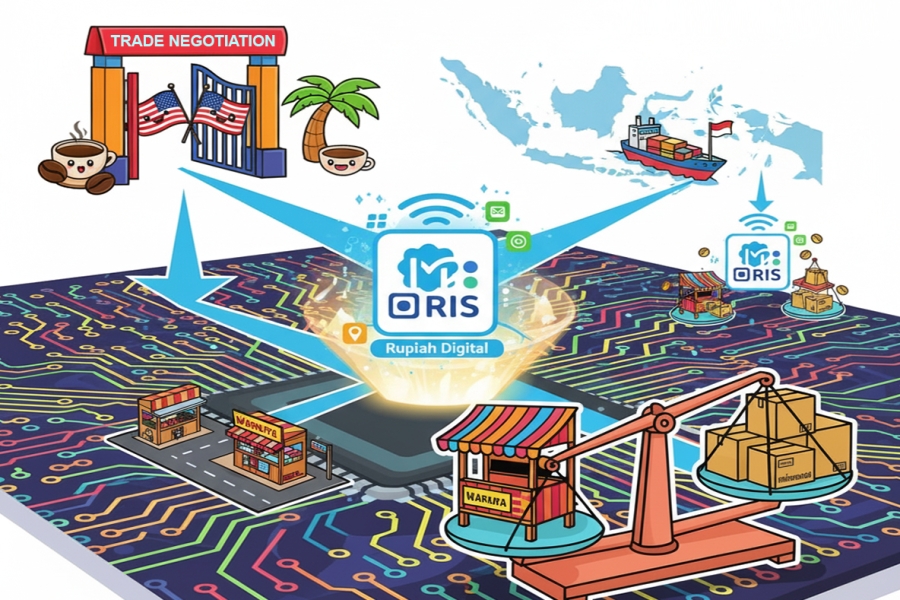
Today's economic landscape is marked by digital breakthroughs from Bank Indonesia (BI) and strategic issues related to trade and the sustainability of MSMEs. BI introduces the QRIS Tap-In-Out feature for public transportation, while also announcing plans for the issuance of the Digital Rupiah and a digital version of SRBI (Bank Indonesia Certificate) as a step towards a more modern and inclusive financial system. On the trade side, the government reopens negotiations with the United States to obtain a 0% tariff for superior export commodities. However, public attention is also focused on concerns about the declining competitiveness of Warung Madura amidst the expansion of large Modern Retail chains.
Bank Indonesia (BI) leads efforts to modernize the payment and monetary system amidst global and domestic economic challenges. Bank Indonesia (BI) launches QRIS Tap-In-Out for 5 modes of transportation in Greater Jakarta. This initiative aims to simplify payments and encourage the adoption of Digitalization in the public transportation sector. Complementing this modernization, BI will issue the Digital Rupiah and a digital version of SRBI (Bank Indonesia Certificate). This plan shows Indonesia's progress in adapting to Central Bank Digital Currency (CBDC) technology.
Digitalization is also expected to strengthen regional fiscal capacity and global competitiveness. BI states that Regional Original Revenue (PAD) can increase through Digitalization. BI asserts that digital transformation in the regional revenue system will enhance efficiency and transparency. On the international trade front, the government resumes negotiations with the US, targeting a 0% tariff for superior commodities. This step aims to strengthen Indonesia's export competitiveness and gain broader market access to the United States.
However, at the domestic level, the protection of Micro and Small Enterprises (MSMEs) becomes a serious concern. The government is worried about the potential collapse of Warung Madura due to insufficient capital compared to Indomaret, Alfamart, etc. This concern highlights the need for policy protection and support for traditional MSMEs to remain competitive amid the dominance of Modern Retail.
BI's initiatives, such as QRIS Tap-In-Out and Digital Rupiah/Digital SRBI, show a strong focus on the modernization of the payment and monetary system, with the potential to increase Regional Original Revenue (PAD) through Digitalization. Strategically, the 0% tariff negotiation with the US is a vital effort to improve export performance. However, the sustainability of traditional MSMEs like Warung Madura is an urgent domestic issue, demanding policy intervention so that capital imbalance does not destroy people's businesses.
The latest developments reflect Indonesia's direction towards a Digital Economy through innovations like QRIS Tap-In-Out and the Digital Rupiah, while simultaneously striving to strengthen its position in global trade through 0% tariff negotiations with the United States. On the domestic front, the challenge continues with efforts to ensure the sustainability of Warung Madura so they are not eroded by Modern Retail dominance.